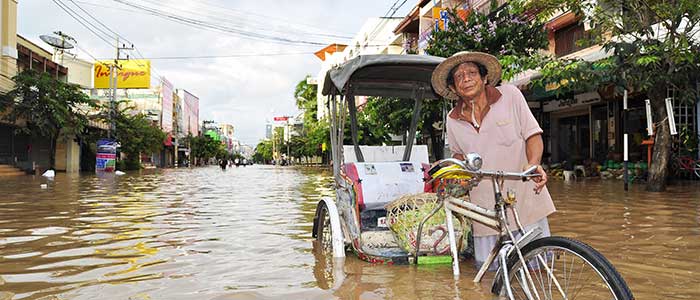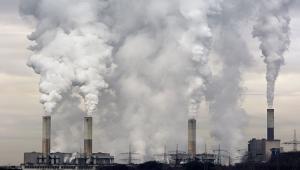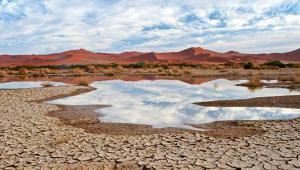Web_WomanInFlood_shutterstock_86773111.jpg

Those on the front lines of climate change are often the least resilient to extreme weather events.
The UK-based advocacy group has said that private sector approaches, even those that receive public funds in the short term, will marginalise the most vulnerable groups of people.
Catherine Blampied, policy advocacy officer for climate risk insurance at Results UK and author of the report, stressed that long-term support from public donors will be crucial to ensuring climate risk insurance truly favours poor people.
Those on the front lines of climate change – usually the poorest people who are least able to pay to protect themselves from an increasingly hostile climate – do not present an easily identifiable profit opportunity for the private sector, she explained to PF.
Some governments in developing countries, such as India, have been able to introduce publicly funded insurance schemes that guarantee access for all.
However, in the poorest and most fragile nations, this is not an option. Here, Blampied said, support from international donors, as a counterpart to private sector schemes, will be “key”.
Big donors around the world are stepping up their investments in this area. But Blampied pointed out that in many cases such commitments are insufficient to provide cover for the poorest.
“The concern for us is what that investment looks like and where is it going to go,” she said. “In the UK’s Department for International Development, for example, they have housed this work within their private sector unit, with the approach that they are going to go in, help set things up, then transition that to a commercial basis as quickly as possible.
“That is fine for some groups and some types of schemes but, in other areas, we will need to see sustained, long-term financial support so, for example, donors can pay premiums for poor people who simply cannot pay themselves.”
The report argues that one of the best vehicles to deliver this support would be a public-private partnership.
While Blampied acknowledges these arrangements often come with a “health warning”, she explained that, with rigorous transparency and management, PPPs can successfully draw on the strengths of both spheres – including ensuring the poor and marginalised are well targeted, a feat the private sector is not achieving on its own.
In sub-Saharan Africa, for example, less than 1% of the population is covered by agriculture insurance, despite the majority relying on the land for their livelihoods.
The World Bank warned last year that 100 million people could be pushed back into extreme poverty as a result of climate shocks, to which they are the most exposed yet have the least resilience.
Blampied said that at the moment there is no big rush from the private sector to fill this gap. Instead, the public sector must step in with long-term commitments.
The report also outlines the key conditions to which public donors should adhere to maximise their contributions’ impact on poverty and resilience and add value to what the private sector is already doing.
These include embedding a gender framework into climate risk insurance programmes, incentivising risk reduction and preparedness, investing in open data systems and promoting the participation of affected communities.
“There now exists a prime opportunity to expand climate risk insurance protection to hundreds of millions of vulnerable people,” the report said.
“But, without concerted efforts by governments and donors, we will miss the chance to equip ourselves with a tool that could help to transform our approach to building resilience and managing the ever more dangerous risks of climate change.”
You can read a blog from Blampied on the difference climate risk insurance can make to the world's poorest here.













